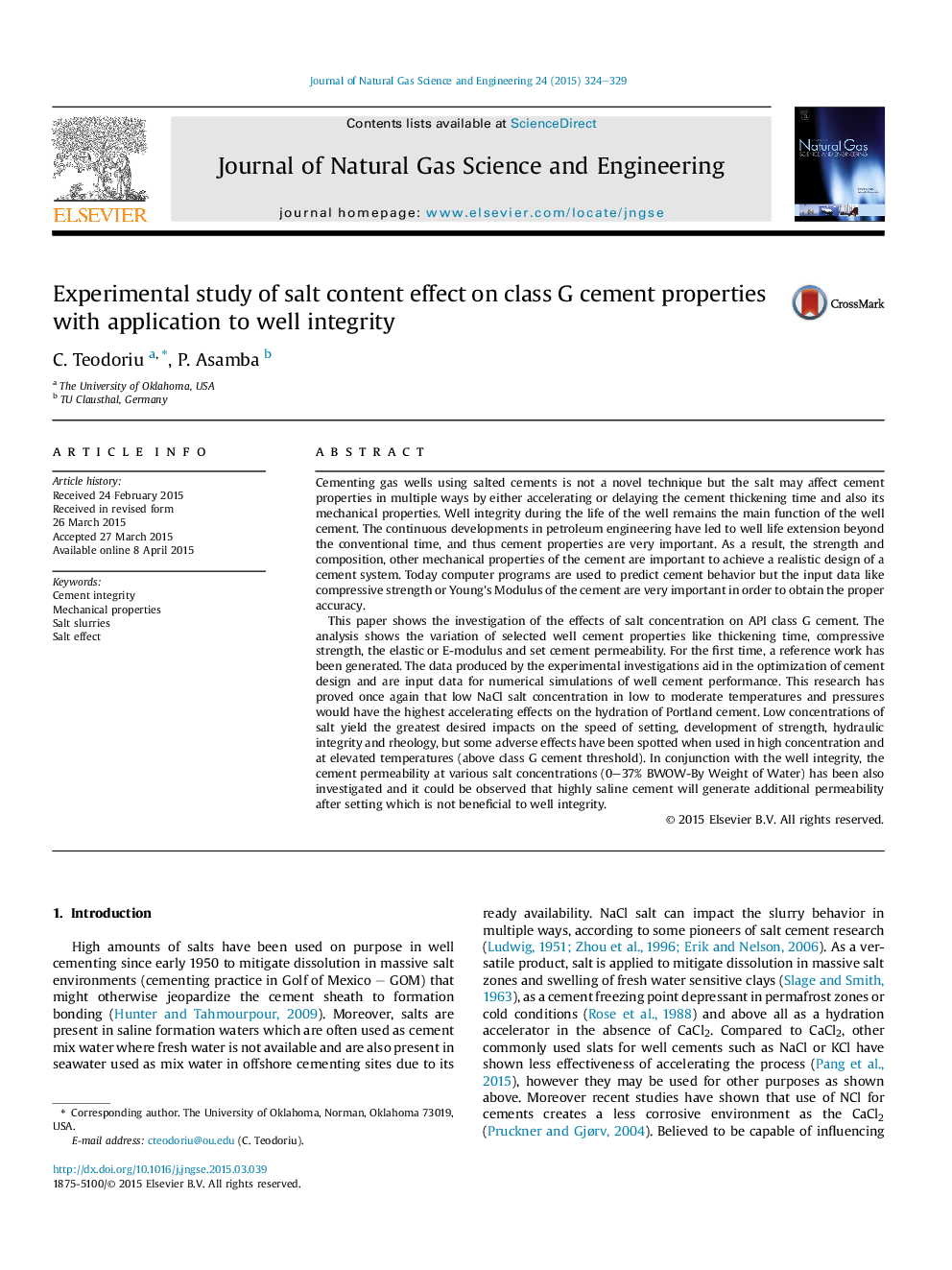| کد مقاله | کد نشریه | سال انتشار | مقاله انگلیسی | نسخه تمام متن |
|---|---|---|---|---|
| 1757424 | 1523016 | 2015 | 6 صفحه PDF | دانلود رایگان |

• For the first time accurate reference data for cement mechanical properties have been generated.
• Salt cements are well known but little has been published about its mechanical properties.
• Salt effect on cement has been investigated covering salt concentrations from 0 to 30% BWOWC.
• For the first time salt cement and fresh water interaction has been investigated.
Cementing gas wells using salted cements is not a novel technique but the salt may affect cement properties in multiple ways by either accelerating or delaying the cement thickening time and also its mechanical properties. Well integrity during the life of the well remains the main function of the well cement. The continuous developments in petroleum engineering have led to well life extension beyond the conventional time, and thus cement properties are very important. As a result, the strength and composition, other mechanical properties of the cement are important to achieve a realistic design of a cement system. Today computer programs are used to predict cement behavior but the input data like compressive strength or Young's Modulus of the cement are very important in order to obtain the proper accuracy.This paper shows the investigation of the effects of salt concentration on API class G cement. The analysis shows the variation of selected well cement properties like thickening time, compressive strength, the elastic or E-modulus and set cement permeability. For the first time, a reference work has been generated. The data produced by the experimental investigations aid in the optimization of cement design and are input data for numerical simulations of well cement performance. This research has proved once again that low NaCl salt concentration in low to moderate temperatures and pressures would have the highest accelerating effects on the hydration of Portland cement. Low concentrations of salt yield the greatest desired impacts on the speed of setting, development of strength, hydraulic integrity and rheology, but some adverse effects have been spotted when used in high concentration and at elevated temperatures (above class G cement threshold). In conjunction with the well integrity, the cement permeability at various salt concentrations (0–37% BWOW-By Weight of Water) has been also investigated and it could be observed that highly saline cement will generate additional permeability after setting which is not beneficial to well integrity.
Journal: Journal of Natural Gas Science and Engineering - Volume 24, May 2015, Pages 324–329